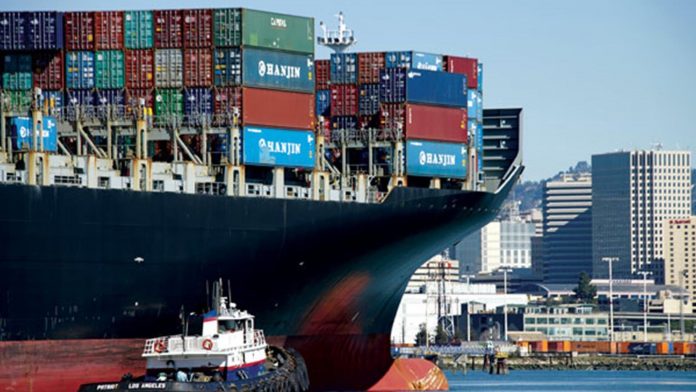
This article has been written by Manisha Bharati, pursuing a Certificate Course in International Commercial Arbitration and Mediation from LawSikho.
Table of Contents
Introduction
The Hague Rules on Business and Human Rights Arbitration or the Rules on Human Rights Arbitration were enacted on 12th December 2019 at the peace palace, Hague. These rules were based on the United Nations Commission on International Trade Law. There are a number of arbitration rules which are already functional and used widely in arbitration. But business and human rights arbitration are new. Businesses in today’s world span across borders and are spread through continents. It is in the best possible interest of businesses that their supply chains ensure compatibility with human rights instruments. It’s only when both the parties involved consent to arbitration that a combination of business and human rights disputes can be resolved by arbitration. The consent would usually lie in their submission agreement or compromise after a dispute arises. In multilateral agreements usually, there’s an arbitration clause that helps in the protection of human rights.
The objective of the Hague Rules
The United Nations Guiding Principles on Business and Human rights came up to provide solutions to business-related human rights violations. Hague Rules are a means to expand the resolution mechanism to arbitration. Arbitration is a widely used method of resolving business disputes. Addressing human rights violations in such business disputes is a novel idea that came up because the national courts in various nations couldn’t prevent human rights infringements. Moreover, there are a plethora of nations that suffer from a lack of robust dispute settlement mechanisms. The national mechanisms face multiple issues like jurisdictional problems, huge costs incurred in such litigation, long delays, and lack of a neutral mechanism.
The Hague Rules aim to safeguard people from such abuses. It aims to transpire into the very supply chain process and development of a business. Hague Rules stress the need for transparency in proceedings and they talk about the public hearings. They also emphasize the necessity of decreasing the power balance between the parties. It lays down a lot of importance to witness protection, collection of evidence, the efficiency and compatibility of human rights and business, etc. 
Key highlights of the Hague Rules
The Hague Rules on Human Rights Arbitration aim to resolve disputes amicably through negotiation, mediation, and other combined settlement mechanisms at all times and even after the commencement of arbitral proceedings. These rules provide a model code of conduct for all presiding arbitrators and stress on independence and impartiality of arbitrators. The code heavily relies on IBA guidelines on Conflict of Interest in International Arbitration. It also prescribes a review into the code of conduct of the arbitrator by the Permanent Court of Arbitration or anybody that is delegated the same responsibility by the Permanent Court of Arbitration.
The rules on Human Rights Arbitration stress the diversity of a tribunal. It provides that the sole arbitrator or the presiding arbitrator should have demonstrated experience in international disputes settlement and awareness about the necessary national and international principles. The rules also state that the sole arbitrator cannot be a national of the State which is a party to the dispute.
There can be a probability of numerous claims and multiple interests and Article 19(1) empowers tribunals to adopt appropriate procedures to efficiently handle numerous parties and their claims. There are also many matters where the lack of merit is evident in a preliminary reading. Article 26 provides for a speedy procedure of disposal of such cases which manifestly lack merit. This provision has been adopted from the similar provisions in ICSID Convention Arbitration Rules, the SCC Arbitration Rules, the SIAC Arbitration Rules.
Rules on Human Rights Arbitration also provide the nationals of parties, the states on whose territory disputes occur, and allow them to file written submissions. The tribunals can allow disclosure of important information to the public giving due importance to public interests and safeguarding the confidentiality of parties.
The awards are also going to specifically satiate the compatibility with Internationally recognized laws on human rights. It must conform to policy requirements of the places where the award is going to be enforced. The rules also provide expedited procedures where disputes are simple in nature.
Probable issues that may arise without State support
At present, the Hague Rules are at a very primitive stage and the practicality of these rules can only be established after they pass the test of time. These rules are clearly a very new idea and they move into an unaddressed territory. Thus, there will inevitably be numerous hurdles that they will have to encounter. Balancing the burden of power between the parties, ensuring impartial arbitration clauses that safeguard rights and rights holders are few very likely issues that are going to come up. Moreover, the Hague Rules have taken the responsibility that various businesses ensure compliance with human rights. They shall also conduct thorough due diligence of the same. But the hurdle here is that conducting the same without state support is not possible.
States have to ensure a robust system of regulating business and compliance with the human rights framework. Lack of the same would leave it to corporations’ will and they usually avoid their liabilities in such matters. It’s only when the courts will put strict sanctions that these corporations will abide by the human rights obligations.
States also have to ensure the enforcement of arbitral awards in matters related to Hague Rules. Hague Rules do not have a specific enforcement regime and it is regulated by the New York Convention of 1958. There has to be a political backing to such awards or it’d have issues in enforcement. A lot of states will also be unwilling because this measure might decrease foreign investments, especially in the present pandemic situation. However, United Nations Guiding Principles on Business and Human rights must be implemented as a priority policy in states to ensure compliance with these rules.
Analysis from the Indian perspective
The hurdles faced by the Hague rules will be most felt in developing nations. India is a developing nation and it has shown clear reluctance to increase the human rights liabilities of corporations in its Model Bilateral Investment Treaty. The Bilateral Investment Treaty does not have any legal implication for human rights violations. Moreover, there’ve been recent changes in the labor laws in India and there’ve been ordinances for suspension of labor laws through ordinances in all new production units for a period of three years. National Voluntary Guidelines on Social, Environmental & Economic Responsibilities of Business of 2018 is another voluntary measure and there’s a clear lack of accountability of these corporations.
Corporations in India have no incentive to opt for Arbitration because there’s a clear lack of obligation related to fulfillment of Human Rights Obligations. Corporations usually prefer to adjudicate domestically than go for arbitration. There will also be significant issues in enforceability against awards under the Hague Rules.
In the landmark judgment of Renusagar v. General Electric, the Hon’ble Supreme Court of India had observed that any award in contravention with the fundamental rights or justice or morality would not be enforceable in India. However, the Supreme Court in NAFED v. Alimenta S.A has expanded the scope of this defense. Furthermore, public policy defense should be read in consonance with Booz Allen Hamilton v. SBI Home. The Supreme Court in this case has gone on to demarcate between rights in rem and rights in personam. Only matters related to the former are subject to the jurisdiction of domestic courts. The Supreme Court also laid down the categories of disputes which are arbitrable in India. It was held in Shri Vimal Kishor Shah v. Jayesh Dinesh Shah that disputes concerning adjudication of such matters are not subject to arbitration in India. Indian Government has to render complete support to Hague rules to make such disputes under the scope of arbitration in India. There will always be issues regarding the implementation and enforceability otherwise. There’s a long way to go and the only way to expedite the process is by the government’s complete support.
Conclusion
The Hague rules pave way for states to develop a robust business and human rights framework. They must try and come up with actions, policies, and regulations. There can be several economic and political implications that need to be addressed so that they don’t act as a hurdle in the growing relationship between business and human rights and human rights and international arbitration.
The Hague rules are a very thoughtful and noble initiative and it provides for an amicable and neutral resolution of human rights disputes. The rules appear as a promising sign for business and human rights arbitration. The Hague Rules are the first significant advancement towards Business Human Rights Arbitration. It aims to start a discourse amongst the various stakeholders and tries to spread awareness about human rights violations. The rules address procedural matters and leave out significant issues of a substance identified with Business Human Rights intervention.
References
- Nicholas J. Diamond & Kabir Duggal, ISDS Reform and Advancing All “Generations” of Human Rights, Kluwer Arbitration Blog (June 17, 2020) accessible at http://arbitrationblog.kluwerarbitration.com/2020/06/17/isds-reform-and-advancing-all-generations-of-human-rights/?doing_wp_cron=1598118460.6411108970642089843750.
- Claire Sheridan, Hague Rules on Business and Human Rights Arbitration: What Lies Ahead?, American Review of International Arbitration, Columbia Law School, (September 28, 2020) accessible at http://blogs2.law.columbia.edu/aria/hague-rules-on-business-and-human-rights-arbitration-what-lies-ahead/.
- Surya Deva, Ethical Trading Initiative, Background paper for India’s National Framework on business and Human Rights accessible at https://www.ethicaltrade.org/sites/default/files/shared_resources/india_national_framework_bhr_background.pdf.
- Maria Laura Izzo, A Further Step Towards Business and Human Rights Arbitration – The Hague Rules, Kluwer Arbitration Blog (September 13, 2019) accessible at http://arbitrationblog.kluwerarbitration.com/2019/09/13/a-further-step-towards-business-and-human-rights-arbitration-the-hague-rules/.
- Shavana Haythornthwaite, The Hague Rules on Business and Human Rights Arbitration: Noteworthy or Not Worthy for Victims of Human Rights Violations?, Kluwer Arbitration Blog (May 5, 2020) accessible at http://arbitrationblog.kluwerarbitration.com/2020/05/05/the-hague-rules-on-business-and-human-rights-arbitration-noteworthy-or-not-worthy-for-victims-of-human-rights-violations/.
- Yili Dautaj, Roll Out the Red Carpet: The Hague Rules on Business and Human Rights Arbitration are Finally Here! ( December 26, 2019) accessible at http://arbitrationblog.kluwerarbitration.com/2019/12/26/roll-out-the-red-carpet-the-hague-rules-on-business-and-human-rights-arbitration-are-finally-here/.
Students of Lawsikho courses regularly produce writing assignments and work on practical exercises as a part of their coursework and develop themselves in real-life practical skills.
LawSikho has created a telegram group for exchanging legal knowledge, referrals, and various opportunities. You can click on this link and join:
 Serato DJ Crack 2025Serato DJ PRO Crack
Serato DJ Crack 2025Serato DJ PRO Crack









 Allow notifications
Allow notifications


